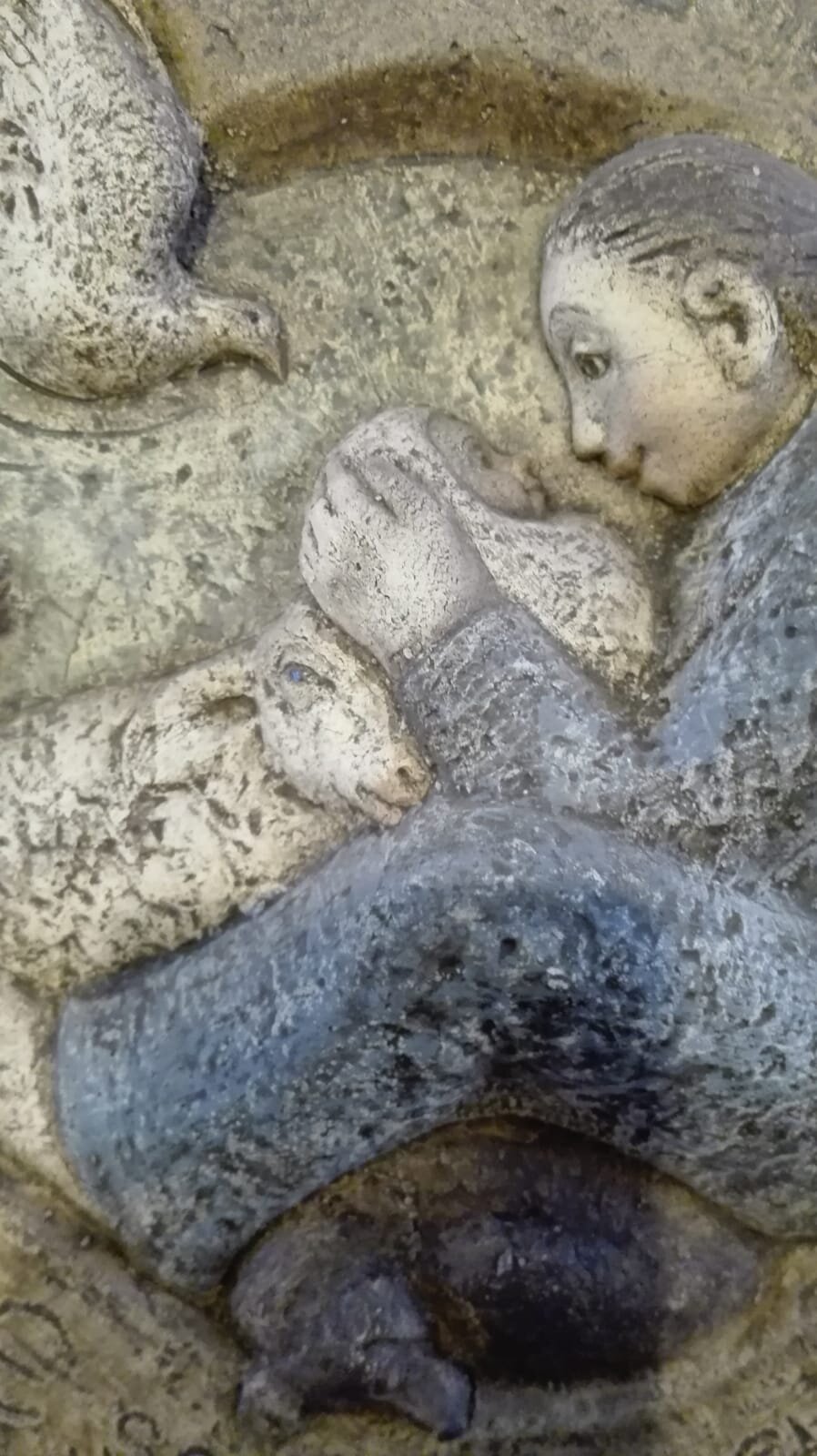What I most long for at Christmas is silence. When the hustle and bustle fades, the people go home and the lights go off. Left alone before the flicker of a last candle, wondering, even doubting, what this is all about…
Welcome to our “little cloister”
where we
EXPLORE MONASTIC WISDOM FOR EVERY DAY LIVING
Drs. Almut & Chuck with little one
Home of
+The Hildegard Seminar,
+Kierkegaard Masterclass,
+Bach Passionweek Consolations,
+The 12 Days of Christmas Contemplations &
+The “Little School” of Spiritual Formation







